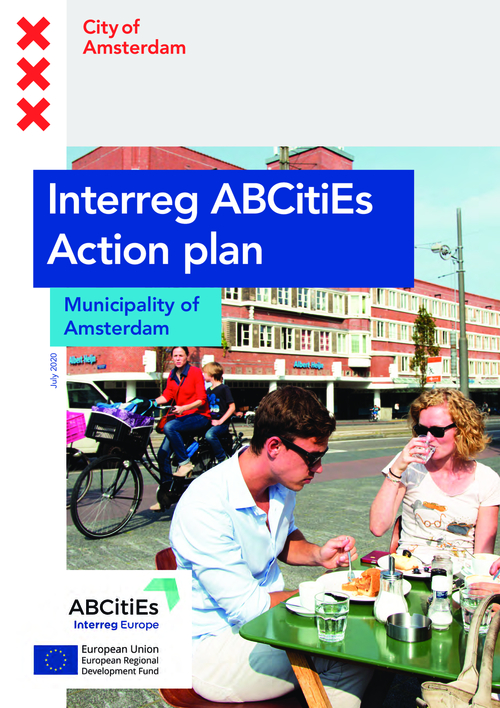AREA BASED COLLABORATIVE ENTREPRENEURSHIP IN CITIES
- WHO: Municipality of Amsterdam, HvA (coordinator), Mykolas Romeris University, Sunrise Valley Science and Technology Park, The Manchester Metropolitan University, Manchester City Council, University of Zagreb, Faculty of Organization and Informatics, The City of Varaždin, The City of Čakovec, Harokopio University, Athens municipality
- WHERE: Amsterdam, Vilnius, Athens, Manchester, and Varazdin-Cakovic DURATION: 2 years from June 1, 2018
- AMSTERDAM'S ROLE: Amsterdam is a partner in this project
- TOTAL BUDGET: 1,596,561 Euro
- AMOUNT FOR AMSTERDAM: 190,359 Euro
In European cities, local entrepreneurs increasingly join forces in new ways by forming collectives to stimulate economic growth and innovation and to create a more attractive entrepreneurial climate. Area Based Collaborative Entrepreneurship (ABCE) entails entrepreneurs collaborating by investing in facilities, jointly promoting their neighborhoods, improving shared public spaces, etc. The value of such collectives is increasingly recognized by local governments, leading to more frequent development of policies to encourage these initiatives. A major advantage of ABCE is that participating local entrepreneurs and businesses are often deeply connected to their neighborhoods, thereby enhancing neighborhood livability and social ties among local stakeholders.
In Amsterdam, recommendations were made based on four case studies: Plein '40-'45, Ik geef om de Jan Eef, Noorderpark Onderneemt, and the Knowledge Mile. The key findings and recommendations from the ABCitiEs project are as follows:
- To ensure local success of ABCE, it is crucial to facilitate support and access to intermediaries from the government and/or municipality. A concrete way to achieve this is through the Business Investment Zone (BIZ).
- Access to financing or subsidies for ABCEs is a recurring challenge. One of the outcomes of ABCitiEs is therefore to provide ABCEs with access to long-term subsidies to ensure the positive effects are sustained.
- It can be challenging to demonstrate the effects of an ABCE. Therefore, it is important to conduct proper monitoring, for example, through easily accessible dashboards with data.
- Because the effectiveness of an ABCE approach heavily depends on the local context, it is crucial for the precise implementation of local ABCE to be sensitive to this. ABCEs thus benefit from flexible regulations and policies that allow instruments to be tested gradually and experimentally.
For more information on the ABCitiEs project in Amsterdam, please refer to the attached annex.
